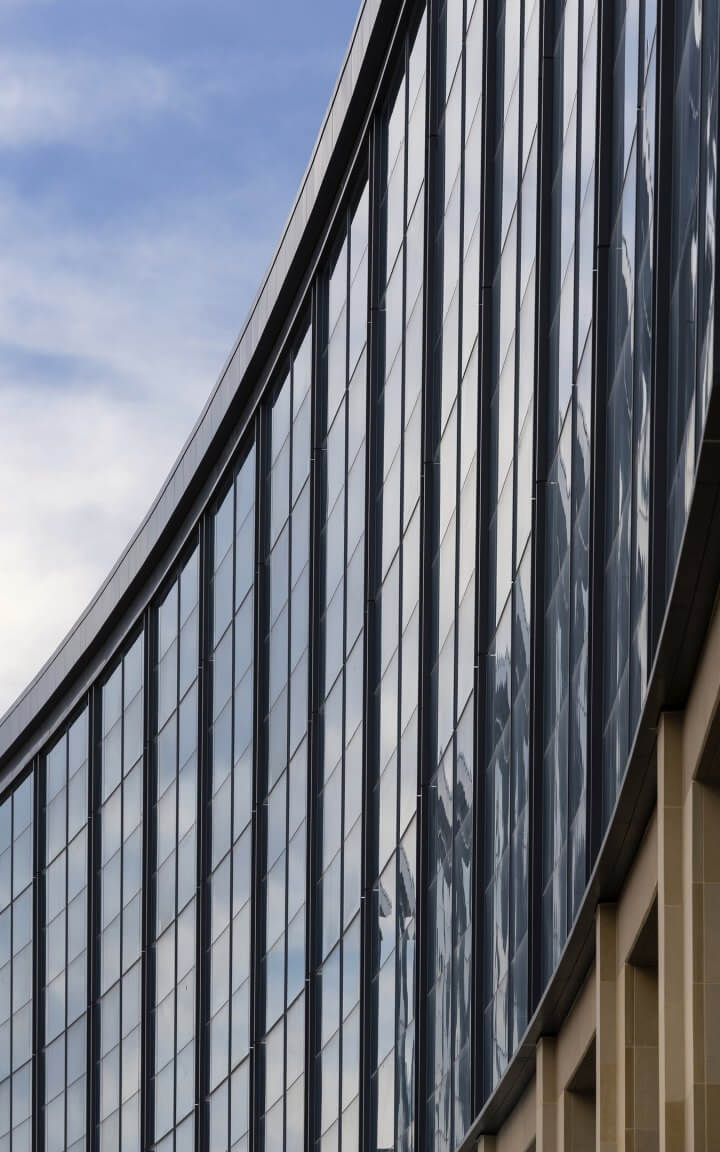Corgan’s Hybrid Report Recognized with Certificate of Research Excellence by Environmental Design Research Association
DALLAS — Research conducted by global architecture and design firm Corgan has received the Environmental Design Research Association (EDRA) Certificate of Research Excellence (CORE). Developed by Corgan—Hugo, the firm’s research and innovation group, in partnership with Corgan’s Workplace Strategies team, “The Hybrid Report” has received CORE recognition, which EDRA awards to rigorous and innovative practice-based environmental design research studies. The Hybrid Report outlines decision-making drivers, key pain points and preferences, and design elements that shape the employee experience.
The Environmental Design Research Association is an international organization with members who are design professionals, social scientists, students, educators, and facility managers. Applications to EDRA CORE undergo a rigorous, double-blind review by an interdisciplinary panel of experts. Hybrid Report authors are Melissa Hoelting Assistant Director of Hugo; Mahdi Afkhami, Design Researcher, Environmental Design; Samantha Flores, Director- Hugo; and Emily Strain, Director of Workplace Strategy. The CORE award was presented at the EDRA55 Portland conference June 19-22.
“We are honored that our work has received this esteemed recognition by EDRA,” said Melissa Hoelting, Assistant Director of Hugo. “The Hybrid Report aimed to identify actionable insights for policy and design, and it is currently being used to advise Corgan’s clients across industries and company size. We look forward to seeing its immediate and long-term impact on company culture and performance.”
The Hybrid Report Methodology
Corgan—Hugo conducted 45 in-depth interviews with U.S. leaders working in industries with hybrid work environments. Executive leaders, managers, and HR professionals were identified and interviewed through a third-party platform, producing more than 40 hours of recorded anecdotal data and key leadership insights.
To identify workforce insights, Corgan—Hugo conducted a third-party survey of 1,000 full-time, corporate hybrid workers. The survey targeted workers born between 1965-1980 (Gen X), 1981-1996 (Millennials), or after 1996 (Gen Z).
Key findings of The Hybrid Report’s survey of hybrid workers include:
- Flexibility is a term that means different things to different people in a variety of circumstances. For hybrid workers, flexible time is just as important as flexible location. Personal preferences are driving decision-making overall — for policy but also spatial design and environmental affordances. Flexibility accommodates the diverse needs and preferences of hybrid workers for focus work and respite.
- The office is not currently productive - and the hybrid workforce wants and needs it to be. 76% feel more motivated working in a group or seeing others around them being productive. However, 73% feel most individually productive when they work from home or another location outside of the office.
- Hybrid workers who joined their company prior to the COVID-19 pandemic tend to have a longer tenure, highlighting the importance of in-person interaction during the initial stages of joining a company. However, establishing oneself within a company is not solely dependent on the length of time spent there. It revolves around building relationships with colleagues, becoming part of the company culture, and building familiarity with resources, all of which hybrid workers consider important to occur in the built environment.
Key findings of The Hybrid Report’s interviews with leaders include:
- Many company leaders feel key drivers for coming into the office are collaboration, motivation, passive mentorship, relationship, culture building, and productivity.
- Metrics for success are changing and measuring overall productivity is becoming more indicative of that success than simply in-office occupancy. Performance is being measured by the ability to complete work and the office can better support this. Employees prefer the ability to be collaborative and connected.
- Teams need privacy and space to work openly together without bothering others, while also having access to the necessary environmental qualities for individual focus.
“At the core of what I believe about the workplace is that it is a tool—one that organizations can deploy to achieve business goals,” said Lindsay Wilson, President and Interiors Sector Leader at Corgan. “We didn’t set out to debate the future of flexible work or hybrid work policies but to understand what makes the workplace work for people.”
In this episode of the firm’s podcast, The Square, Emily Strain and Melissa Hoelting discuss how design impacts how we work. Explore more Corgan research insights at News & Insights | Corgan.
Additionally, Corgan presented studies that align with this year’s EDRA55 conference theme of Human-Centric Environments:
- Enhancing Traveler Experiences: Using Data-Driven Customer Journey Maps to Inform Airport Design - by Melissa Hoelting, Assistant Director of Corgan—Hugo
- Targeting Urban Heat Island Mitigation Based on Neighborhood and Socio-Economic Data – by Mahdi Afkhami and Kevin Sloan, Design Researchers, Environmental Design at Corgan—Hugo
- Supporting Attention through Design: Examining How Library Design Can Influence Attention Restoration – by Eva Neri, Interior Design Project Coordinator
ABOUT CORGAN
Corgan is an employee-owned architecture and design firm with 18 locations and nearly 1,000 team members globally. The firm, ranked as the #4 architecture firm by Building Design + Construction, works with clients in a variety of sectors including aviation & mobility, data centers, education, health, mixed-use, multifamily, office, and workplace. Founded in 1938, Corgan has developed a strong reputation for agility in design by anticipating marketplace changes and leading clients to thoughtful, data-driven design solutions. Its research insights and design expertise empower the organization to foresee emerging changes and develop solutions that minimize risk, create flexibility, and maximize longevity. To learn more about Corgan, visit www.corgan.com.





